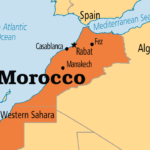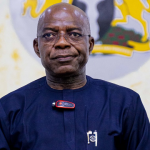The House of Representatives on Tuesday urged the Federal Government to suspend the planned increase in telecommunications tariffs until telecom companies improve their service quality.
This decision followed a motion of urgent public importance raised by Oboji Oforji (PDP, Bayelsa), who highlighted the need to halt the proposed tariff hike.
While leading the debate, Oforji referred to the recent announcement by the Minister of Communications, Innovation, and Digital Economy, Dr. Bosun Tijani, who revealed that telecom tariffs might soon rise.
“According to the Minister, consultations are ongoing as some of these companies have agitated to increase tariffs to as high as 100 percent,” Oforji said. “He, however, mentioned it wouldn’t be a 100 percent increase, and the Nigerian Communications Commission will approve and announce the new tariffs in due course.”
Oforji explained that telecom companies justify the proposed hike due to rising investment costs, network improvement needs, and the growing demand for digital services in sectors like education, banking, and healthcare.
He noted that the Association of Licensed Telecom Operators of Nigeria (ALTON) and the Association of Telecommunication Companies of Nigeria (ATCON) have been pushing for this increase for over a decade. Their reasons include record inflation, which stood at 34.6 percent in November 2024, and losses from foreign exchange fluctuations.
However, the National Association of Telecoms Subscribers has rejected the proposed tariff increase, calling it “insensitive” and an additional burden on Nigerians already struggling with poor network services and economic hardship.
“It is important that telecom companies improve their poor service delivery, which Nigerians have complained about for years, before increasing their tariffs,” Oforji stressed.
He warned that the tariff hike could worsen financial struggles for average Nigerians, threaten the country’s economic growth plans, deepen poverty, and widen inequality, especially affecting low-income families.
“Affordable connectivity is crucial for sectors like digital banking, education, healthcare, agriculture, and e-governance,” he added. “Small businesses, which rely on affordable telecom services for operations and marketing, will face extra financial pressure. A 10 percent tariff increase could reduce small business profits by up to 7 percent, potentially causing business closures.”
Supporting the motion, Billy Osawaru (APC, Edo) said, “In developed countries, people pay for top-quality services. But here, telecom services are ineffective. Nigerians often carry two phones just to stay connected. We’re not against tariff increases, but not now. Telecom companies should first improve their services and explain the need for the hike.”
However, Dominic Okafor (APGA, Anambra) argued in favor of the tariff increase, stating that telecom operators need higher tariffs to cope with rising business costs in Nigeria.
The House resolved that the planned tariff increase should be put on hold until there is a significant improvement in service quality.










